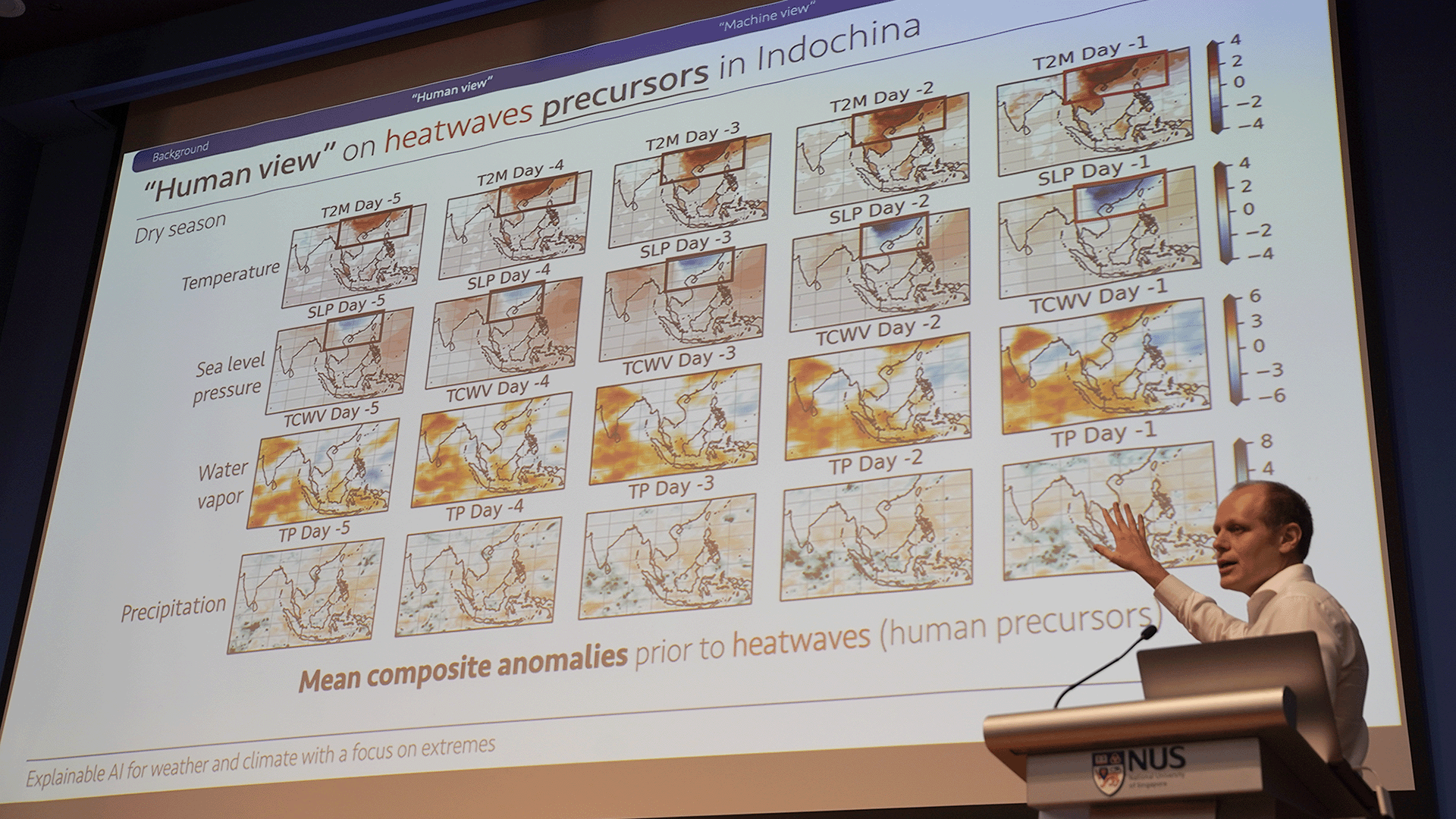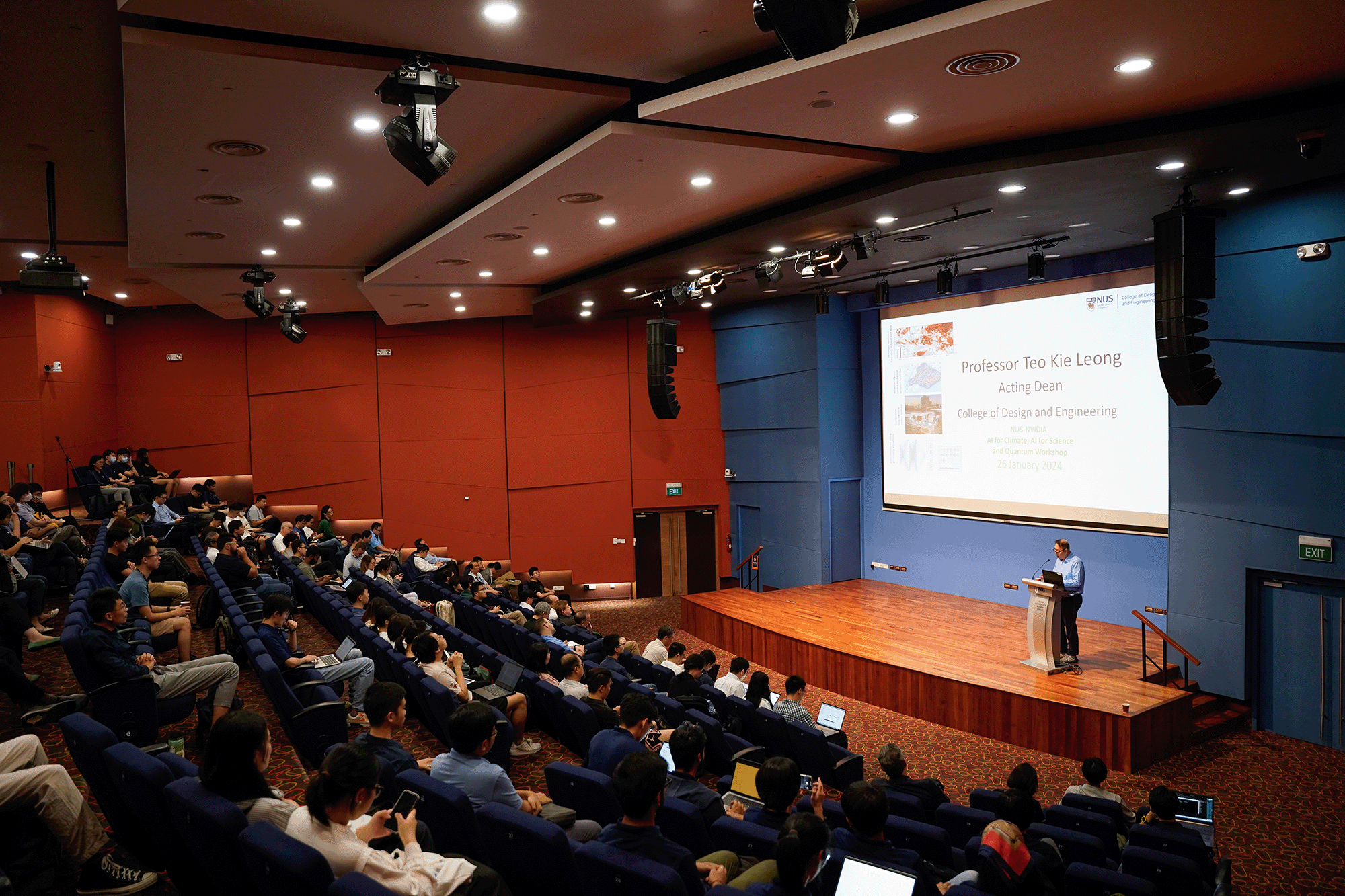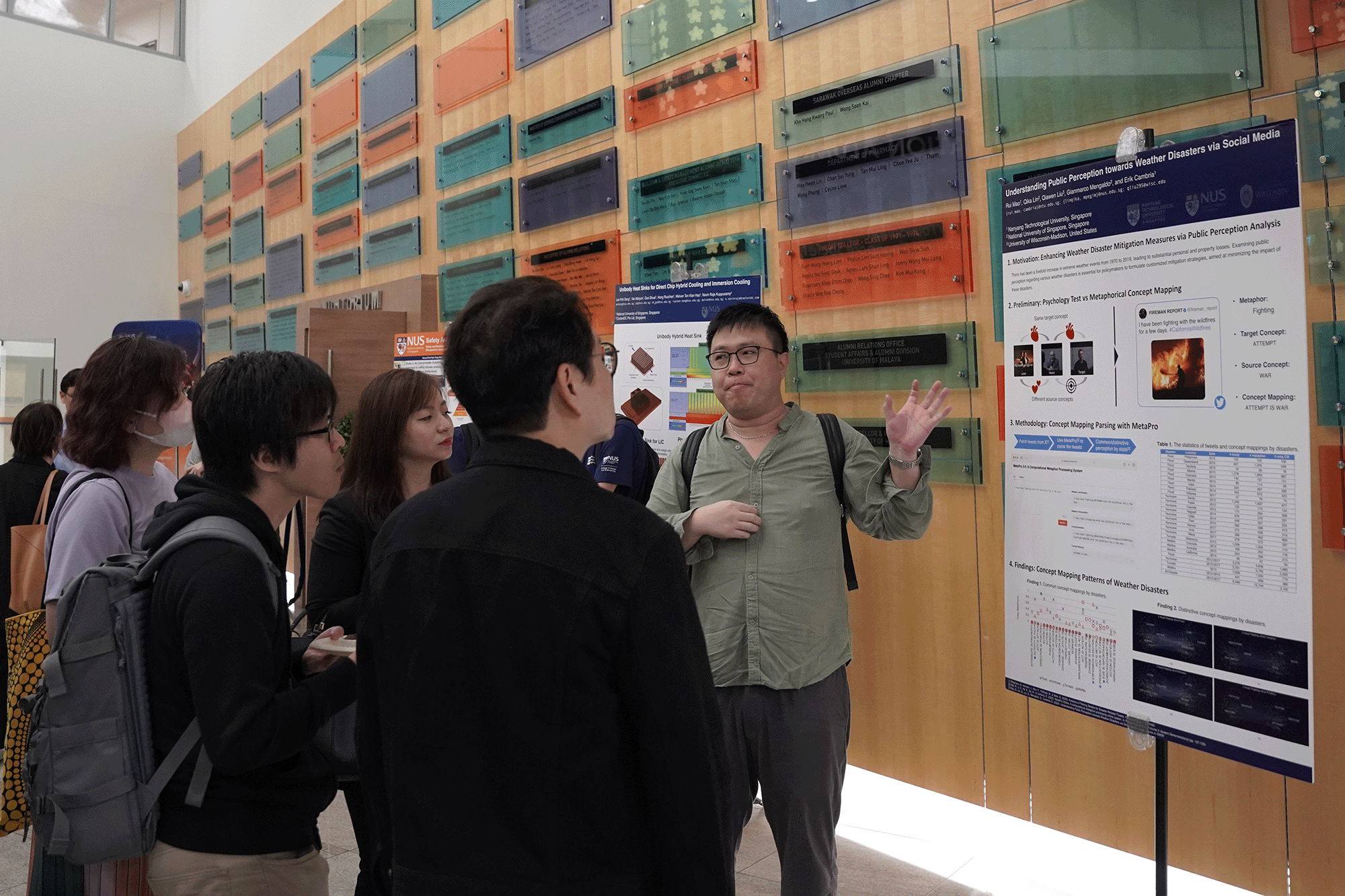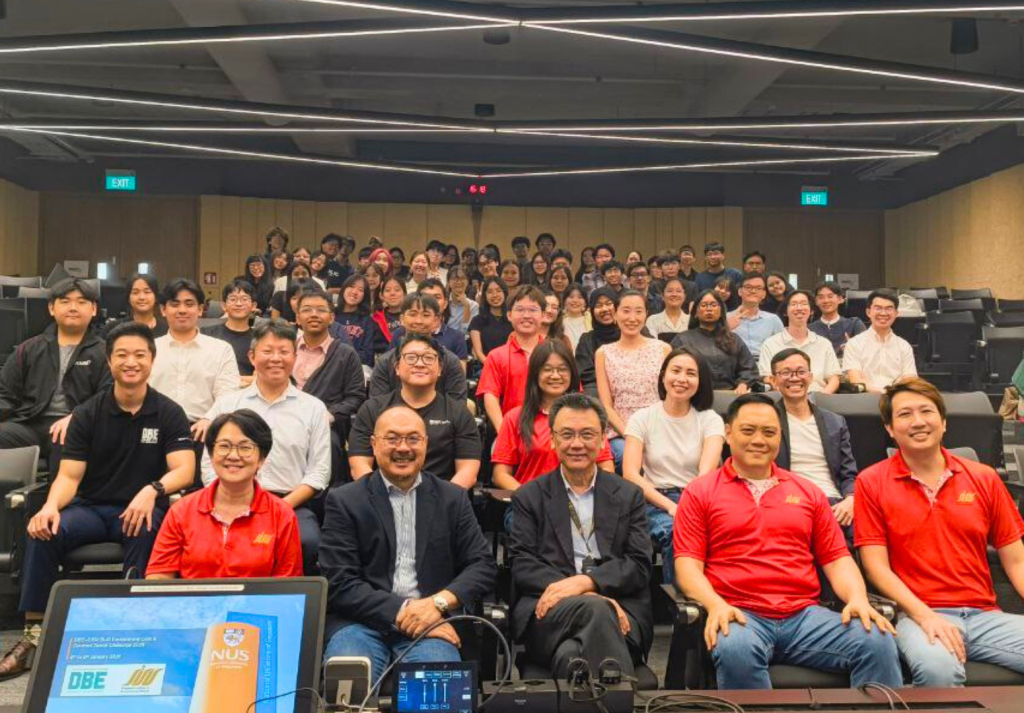
CDE, in collaboration with NVIDIA, recently brought together experts from industry and academia for a day-long workshop at NUS to explore the potential intersections between artificial intelligence, climate science, and quantum computing.
Held on January 26, 2024, the Al for Climate, Al for Science, and Quantum Workshop focused on the evolving landscapes of these transformative technologies and how AI might be applied to develop innovative solutions for some of the world's most pressing challenges.
In his welcome address for the event, CDE Acting Dean Professor Teo Kie Leong noted that recent swift advances in AI had generated “a new wave of opportunity for us to accelerate a positive impact on human civilisation.”
“NVIDIA, as a leading company developing high-performance tools for AI, serves as an enabling platform for many of our colleagues’ creative ideas and innovations,” Prof Teo said.

“For example, research using AI for climate prediction of weather extremes can benefit from faster climate modelling, with access to NVIDIA’s suite of AI tools. Furthermore, in climate resilience research, new AI models and initiatives developed by our CDE faculty enable AI tools themselves to be more power efficient.”
Among the researchers presenting their work at the event was Assistant Professor Gianmarco Mengaldo (Mechanical Engineering), who co-hosted the workshop.
Asst Prof Mengaldo’s presentation detailed his research on using AI to expand human understanding of extreme weather events in Southeast Asia, showing that changes in global weather patterns are leading to more weather extremes such as heatwaves and extreme rainfall.
Outside the auditorium, a poster exhibition showcased a number of CDE-led research projects, ranging from autonomous robotics and advanced chip-cooling solutions to the use of public perception analysis to reduce the impact of weather disasters.
Other CDE work on show included research in safety analytics, an authentication protocol to defend smart meters against potential future quantum attacks, and an innovative approach to creating small and compact decision trees for classification tasks.
The workshop was broken down into three main domains:
- AI for Climate saw participants engage in discussions centred on harnessing AI technologies to address the challenges posed by climate change. Discussions delved into the application of machine learning models for climate data analysis, weather pattern prediction, energy consumption optimisation, and the formulation of climate adaptation strategies.
- AI for Science meanwhile provided a glimpse into the transformative potential of AI across various scientific domains. Conversations revolved around leveraging AI to process massive datasets, simulate complex systems, and accelerate scientific discoveries, showcasing the myriad ways in which artificial intelligence is reshaping the scientific landscape.
- The Quantum Computing area saw experts delve into the pivotal role of quantum algorithms in advancing AI and scientific research. Discussions spanned from solving complex AI problems to simulating molecules for drug development, optimising machine learning models, and enhancing encryption methods, offering a glimpse into the quantum future of technology.
Asst Prof Mengaldo said the event served as “a platform for presentations and networking activities and underscored the importance of interdisciplinary cooperation in addressing global challenges”.

“This workshop is an excellent opportunity for participants from academia and industry to come together to explore case studies, share best practices, and brainstorm ideas for future research and application,” he said.
He added the event had enabled participants to have “insightful discussions on the various activities of NVIDIA around the world, and the collaborations they’ve established with several stakeholders.”
In addition to representatives from NVIDIA, participants in the workshop included researchers from NUS as well as other Singapore institutions including NTU, SUSS, SIT and Temasek Polytechnic.
Others came from Chulalongkorn University in Thailand, Peking University, Tsing Hua University, University of Science and Technology of China and Newcastle University in the UK.
Government-related agencies taking part included representatives from AI Singapore, A*STAR, NEA, China Meteorological Administration, Chinese Academy of Sciences (CAS) and Quantum Technology Foundation (Thailand).






